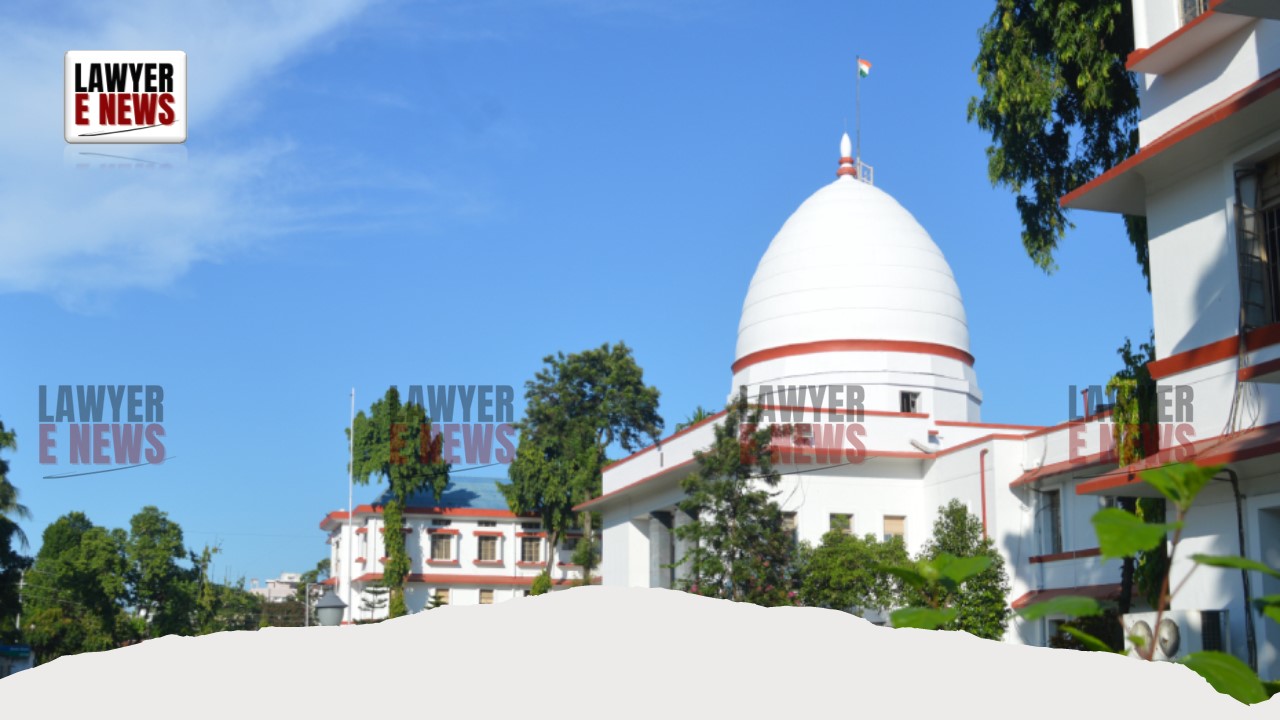-
by Admin
15 February 2026 5:35 AM



Gauhati High Court in Smt. Mina Devi vs. State of Assam dismissed the appellant's claim for arrear salary, affirming that her appointment as a stipendary teacher was made against a non-existent post. The Court ruled that the appellant’s appointment was illegal, precluding her from claiming any salary or compensation for services rendered.
In this case, the Court emphasized, "An appointment made against a non-existent post would be illegal. In that view, this Court cannot issue a writ of mandamus directing the respondents to pay the salary to the petitioner even if she has rendered services against a non-existent post."
On September 19, 2024, the Gauhati High Court, comprising Hon'ble Mr. Justice Lanusungkum Jamir and Hon'ble Mr. Justice N. Unni Krishnan Nair, delivered a ruling in Smt. Mina Devi vs. State of Assam (WA 106 of 2019). The appellant, Mina Devi, had filed an appeal challenging the dismissal of her writ petition, where she sought the release of arrear salary from her initial appointment as a stipendary teacher. The key legal issue revolved around whether the appellant, whose appointment was found to be against a non-existent post, could claim salary for the period of her service. The Court upheld the earlier judgment dismissing her claim, citing the illegal nature of her appointment.
Mina Devi was appointed as a stipendary teacher in 2001 by the Deputy Inspector of Schools, North Lakhimpur, Assam, against a retirement vacancy. However, it was later revealed that the vacancy had already been filled by another teacher in 1999, making Devi's appointment effectively against a non-existent post. After her salary was not released, she approached the Gauhati High Court seeking arrear salary through a writ petition, which was dismissed by a single judge. Devi then appealed this decision.
The central issue before the Court was whether Devi, appointed to a non-existent post, could claim arrear salary for her services. The Court examined the legality of the appointment and reaffirmed that:
Illegal Appointment: The Court found that Mina Devi's appointment was illegal from the outset because the post had already been filled in 1999. Consequently, her service, although rendered, did not give rise to a legal right to salary.
Quantum Meruit Argument: The appellant argued that under the principle of quantum meruit (compensation for services rendered), she should at least be compensated for the work done. However, the Court clarified that statutory entitlements such as salary can only arise from a valid and legal appointment. Since her appointment was deemed illegal, no such claim could be sustained.
Mandamus and Judicial Limits: Mina Devi sought a writ of mandamus to compel the release of her salary. However, the Court held that it could not issue such an order for illegal appointments, noting, "The law is fairly settled that an appointment made against a non-existent post would be illegal."
Departmental Consideration: Devi’s case was reviewed by a Screening Committee, which determined she was not eligible for regularisation or salary since her appointment was not valid. The appellant failed to challenge this determination or the factual basis of her initial appointment.
Illegal Appointment: The Court reiterated that Devi was appointed to a non-existent post, which nullified any legal right to claim salary.
Statutory Right to Salary: The Court emphasized that rights to salary, pension, and other service benefits are entirely statutory. Such rights arise only from valid, lawful appointments, and no legal or statutory right to salary could stem from Devi's appointment.
Judicial Precedents: The Court referred to several rulings, including State of Bihar & Ors. v. Devendra Sharma (2020) and R. Vishwanatha Pillai v. State of Kerala (2004), which reaffirmed that salary claims cannot be based on illegal appointments.
The appeal was dismissed, and the Court upheld the earlier decision that Mina Devi’s appointment was illegal, precluding her from claiming any arrears of salary. The appellant’s argument based on quantum meruit was also rejected, as the Court found no legal basis to compensate her for the period she served.
The Gauhati High Court concluded that the appellant’s appointment being against a non-existent post rendered it illegal, and thus, no statutory entitlement to salary could arise. The appellant’s claim for arrear salary and compensation for her services was dismissed, and the judgment set a firm precedent that illegal appointments do not confer rights to salary or other service benefits.
Date of Decision: September 19, 2024
Smt. Mina Devi vs. State of Assam
